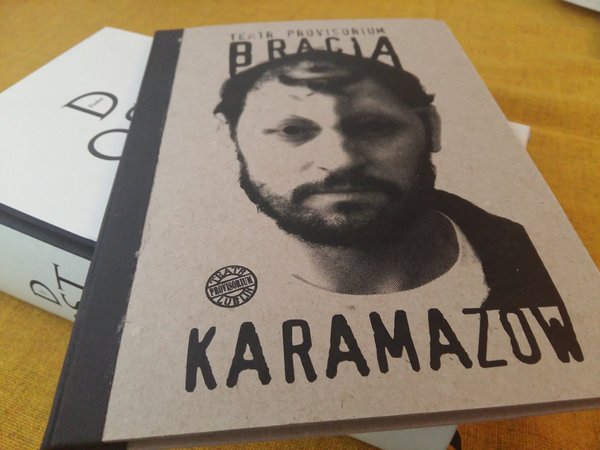
by Fitz | Apr 27, 2019 | Essays, The Crafted Word Blog, Workshops
Some thoughts from the trenches…
Not everything can be put into a box. For years I have been trying to teach middle school and high school age boys “how to write” by using a series of extremely detailed rubrics that leave little to chance, but maybe (I can’t believe I am writing this) I should just stick with helping them think imaginatively, take risks, learn the meat and bones of effective writing—and then write, write, write, write, write…
I am serious. It seems like every time I try to “teach” writing, I am met with sincere, yet vacuous eyes almost pleading to be freed from the contradictory admonitions spewing out of me like smoke from a tall factory stack on a wild and windy day.
Yet…
When I simply let them write and blog and journal about “whatever,” they sooner or later become better writers, more interesting writers, more confident writers—writers who are invested, engaged and inspired by the “process” of writing. They are more like kids at recess playing whiffle-ball for the sheer joy of the game. Not baseball you might say—but pretty damn close. By and large, when the boys come to like writing, they might actually listen to my droning. Heck, they sometimes even (maybe) want to write the classic five-paragraph expository essay.
I need to get back to the more magnanimous and enlightened practice of allowing my students to write instead of mega-focusing on teaching them how to write. In the same way they learned to speak, they will figure it out how to say what, and when and why what they write works or doesn’t work. (How’s that for convoluted writing!) I am not ready to can my rubrics and chuck them in the trash. I just think they have become the cart pushing the horse for me—an easy fallback that gives shape and form and meaning to content—never a bad thing!
A writer needs to feel that he or she is the engine pulling the train and not the passenger being pushed to a dark precipice. Every English teacher should let kids write. (Even better, every English teacher should be a writer—a flesh and bones writer in the same way our music teacher knows and plays his music and is, hence, a real musician!) Writing for the sake of writing should be, front and center, a part of every academic day. As a parent, I would be more than willing to let go of some “critical” component of the schools curriculum to allow it to happen. The old adage: “Readin’, Writin’ and ‘Rythmatic” rings pretty soundly for me. Everything else is tasty, but proscribed, icing on the cake.
Sometimes nothing works. No matter what I do as a teacher, some few of my students will learn little, write little and leave my class little the wiser, which is a sad, but hardly debatable, reality. We just don’t reach everyone, and we often don’t reach the students that need to be reached the most. In those times, all we can do is keep the red pen of criticism wisely at bay and hope they see that the door to our heart is always open and that the starting line is still there.
And let them tell their story.
And show them how to tell it well.
And hope they listen…

by Fitz | Apr 13, 2019 | Essays, The Crafted Word Blog, Workshops, Write
 I am constantly asking my students (and myself) to reflect on the literature they, and I, read. As I have grown older—and not necessarily wiser—I find myself only reading literature that I am sure will prod me out of my intellectual and emotional torpor, like a lizard basking in the newfound warmth of spring. Right now it happens to be The Brothers Karamazov, a book I first read as an eighteen-year-old literary newbie. It might have been the first time I didn’t turn away from a book because of the daunting length of the text and the panoramic sweep of life it covers. It is now a completely new experience, though it still resonates with the young and restless soul that even now permeates the fibres and sinews of my aging and ageless self. That book made me think.—and forced me to think beyond and into my myopic experience of life thus far.
I am constantly asking my students (and myself) to reflect on the literature they, and I, read. As I have grown older—and not necessarily wiser—I find myself only reading literature that I am sure will prod me out of my intellectual and emotional torpor, like a lizard basking in the newfound warmth of spring. Right now it happens to be The Brothers Karamazov, a book I first read as an eighteen-year-old literary newbie. It might have been the first time I didn’t turn away from a book because of the daunting length of the text and the panoramic sweep of life it covers. It is now a completely new experience, though it still resonates with the young and restless soul that even now permeates the fibres and sinews of my aging and ageless self. That book made me think.—and forced me to think beyond and into my myopic experience of life thus far.
In short, I could not read without responding. The reflections of my mind needed an outlet, so I found myself arguing and assenting long rambles in notebook journals or with anyone who would listen to me, argue with me and explore with me. In that way the novel became—and still is— a part of me. The more I wrote about what I read the more I knew the book. By knowing what I knew (and did not know). I realized that only by exploring through reflection could I answer through an essay.
Most of us have to write essays about subjects we know precious little about; hence, our essays have the taint of soured milk—still milk, but hardly worth drinking…
Our teachers mark us down for inserting the I voice into our writing as if “we” don’t really exist—as if there must always be proof beyond ourselves that “knows” more than we know—as if that is something we don’t already intrinsically know. To me, a good essay reeks of what we know, what we have explored and what we are seeking to know, and it is a damn pity when a teacher robs us any part of that triad.
You are only wrong when your facts are wrong, distorted by prejudice or bigotry, or so steep in self-indulgent arrogance that your words fail to resonate with any kind of lasting ring—like a drum without a skin or a harp without a string.
You are equally wrong when you simply spin words into a song without music, words without meaning and foundation in your own heart—without the essence of the real and palpable you to speak with a clarity that helps others to see and feel and experience “your” experience.
A reflection is simply your recreation of your inner experience of experience. In reflecting we see our warts and blemishes clearly until those imperfections are diminished by the truth and sincerity of our search for meaning and substance to give voice to that search—and that search should extend beyond yourself. No doubt if you wondered something, someone else wondered the same thing, and maybe even wrote about it.
Keep exploring until your inkwell is dry and your head is emptied.
And only then should you write your essay…

by Fitz | Apr 11, 2019 | Essays, The Crafted Word Blog, Workshops
Close Your Eyes & See
A lot of things in life fall short of the mark, but thoughtfulness has never let me down. For some forty years I have faithfully kept journals of the wanderings of my mind—most of which is lost in some way or another, but the effect hangs on like a sailor clinging to a piece of flotsam: it proves to me that I am real and not lost; it creates substance out of what might otherwise be ephemeral ether lost to the vagaries of procrastinated time. In the meandering evolution of my words set to page is left a lingering mark etched into a marble wall of time that can never be sandblasted clean.
Simple reminders that I am what I am.
It is almost frightening to know that who I am is freighted with an urgency to continually change what I am. The irony is in how tightly I must shut my eyes to see clearly into myself. Stripped bare I am a meager and skeletal portrait of a man—a shaky scaffold of dreams and desires connected inextricably to the pulsing aorta of reality.
Life. Ineffable life.
But it can not be any other way.
I am doomed and emboldened to speak the voice that barks and sings, laments and praises, and shouts and drones the inexcusable and intransigent me in glorious triumph and ignominious defeat. I need to see my reflection in stark contrasts: I need a barometric gauge to sense and measure the depth of the coming storms or easy weather. I need to know when to set anchor or set sail.
And all I have is words to guide me.
Words and love are all that is real to me, but it is only words that I question. I do not question my love or unequivocal devotion to Denise or our children or the eclectic diaspora of extended family. I only struggle with the constructs I create. I question my words because they are not created for me—they are created for you; hence, they are weighted by all that preys upon me: vanity, desire and a mania for a purposeful and meaningful life—the very stating of which is almost an anathema, a self-aggrandizing denial and abnegation of human empathy!
Stripped of words I can only utter and respond to what is palpably real and connected to me. I protect my own in spite of all else. Viciously so. And that is good and right and is built into me, and it is unerringly built into me by the hands of a creator beyond my understanding, enough so that I question my reflection on any still waters I see. Beyond faith. Beyond the myopia of circumstance. Beyond anything we share. I am left with words.
It simply is.
I write because I know no other way, but I have no illusions that my path is leading to a greater source. I am constantly humbled by the misdirections I follow. I am less of a guide than a foot soldier commandeered to go foot-first into the minefields of a greater field laced with weed and flower. My solace is that I am still alive—that somehow I have navigated well enough to be where I am—safe, secure, and almost retired into a golden age. I covet my joy like a child his or her inheritance of perpetual splendor. I cannot count or measure my blessings; I can only pass them on.
So I close my eyes at night and expect an infinite dawn.
And so can you.
by Fitz | Apr 9, 2019 | Essays, Rubrics, The Crafted Word Blog, Workshops
What a boring title…rubric-based writing…I am sure this would be a big seller on Amazon: “Buy Now and Save on Fitz’s Narrative Paragraph Rubric!” Frustration guaranteed! Used by hundreds of angry students…
And I could on and and on because I have heard it all, seen it all, and lived it all because anytime I assign a writing piece to a class, it is almost like some law of Newtonian physics comes into play: there is an equal and opposite reaction to my intentions, and you–my young students–will find all sorts of ways to make the assignment seem like horrible, cruel, and useless punishment.
I mean—using a rubric to make our “writing voice” sound natural is like using paint to make an apple look ripe. Maybe I should be fired.
Or maybe you should just man up, read the entire assignment (otherwise known as directions, which I am sure you hope your dentist or surgeon follows) and find out if maybe—just maybe— this rubric thing will help you write a paragraph, essay, or story that really does sound like “you” speaking at your very best.
All writing is artificial. It may be sincere and honest and heartfelt, but it is still fake; you can’t peel the words off the screen and eat them. But— good writing makes a writer and the reader feel more real because the power of the words splayed upon the page helps us experience life in a deeper and more direct way, and therein lies the paradox of writing: if any of us wish to become a more real writer, we need to learn how to make readers feel more real by using the double secret techniques and tools of the writer’s trade. We need to learn how to slowly and deliberately craft our thoughts into words that look, feel and sound real.
Like an acorn or a cat…
I’ve created these rubrics and tweaked them over the years to help you–and me–figure out how to best express our thoughts and feelings in a way that feels alive and natural. There really are no rules in writing. It all boils down to your desired audience wanting to keep reading whatever you are writing–and when that reader is done to have them say, “Yes, that was time well-spent!”
Give them a try. Discard what you don’t like. Add in in what you want.
Every writer is essentially an explorer




Recent Comments